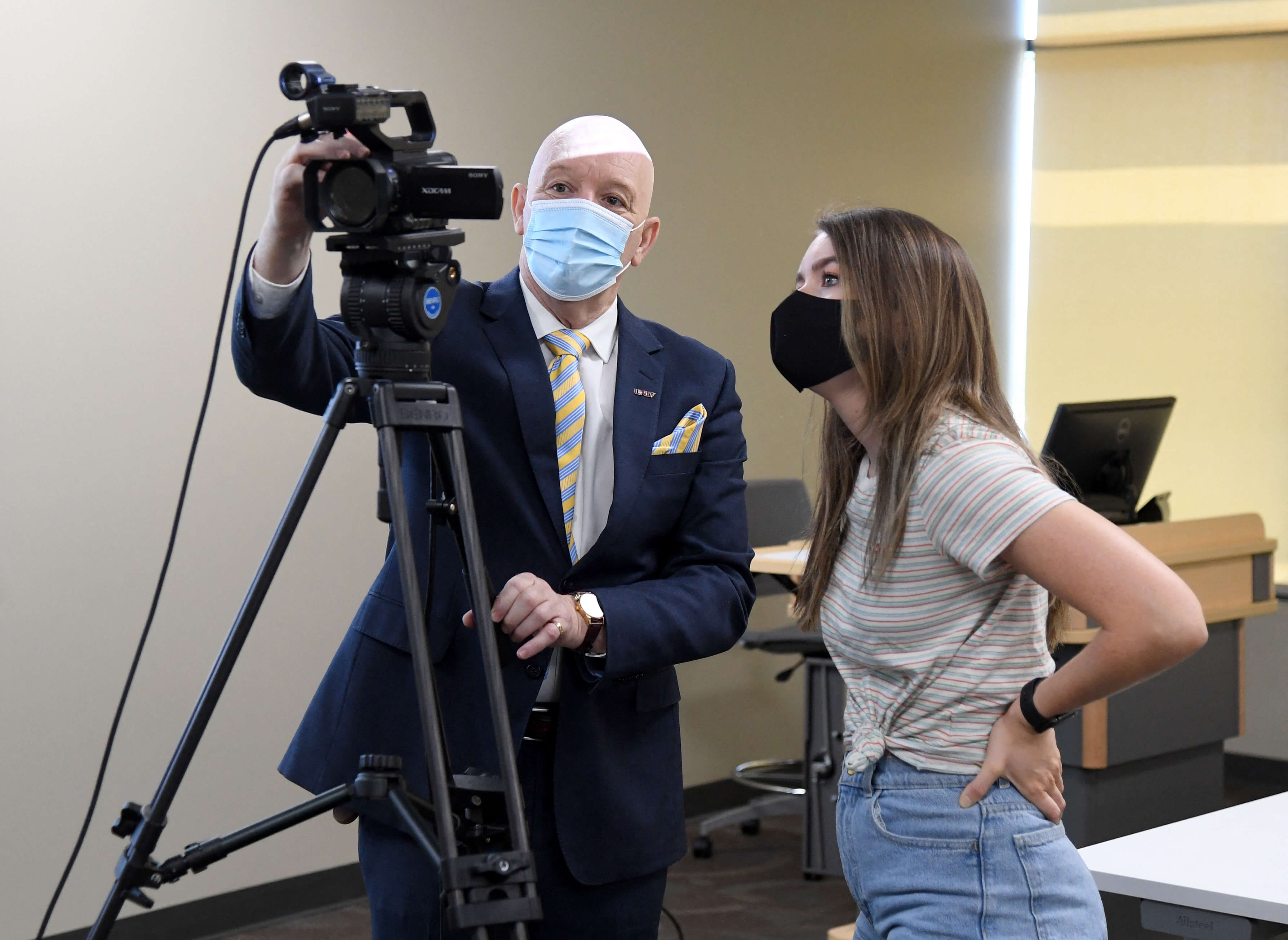
Here’s the latest US visa update for students looking to live and work in the country long-term: a bill recently passed by the House of Representatives will give STEM (that’s science, technology, engineering or mathematics) doctorate graduates a direct pathway to a green card.
The America COMPETES Act intends to boost US manufacturing and research. The bill, originally aimed at combating US dependency on China for semiconductors, will exempt STEM PhD graduates from numerical limits on immigrant visas. On top of this, the bill aims to invest billions in the US tech sector, much of which could go to universities.
Eligible individuals include international graduates from a US institute of higher education in a STEM field, or those with an equivalent qualification from a foreign university. They may be required to pay a 1,000 US dollar supplemental fee to fund scholarships for low-income local students in STEM sectors.
Outside of international STEM PhD graduates, a new start-up visa category will be introduced for foreign entrepreneurs. To qualify, an entrepreneur needs to have an ownership stake of at least 10% in the start-up, which must be less than five years old. They must also show a minimum of US$250,000 in investments from US citizens or organisations or US$100,000 in government awards or grants.

International applicants may be required to pay a US$1,000 supplemental fee to fund scholarships for low-income local students in STEM sectors. Natalia Kolesnikova/AFP
NAFSA: Association of International Educators deputy executive director of Public Policy Jill Allen Murray welcomed the news, but noted that succinct information must be provided to give clarity to international graduates.
“The America COMPETES Act must be reconciled with the US Innovation and Competition Act passed by the Senate last year,” she told The PIE News. “Neither bill includes language to expand dual intent for F-1 international students, which is a key policy for recruiting and retaining international students.”
Here, Murray refers to a US$250 billion bipartisan competition bill passed by the Senate last June, which the America COMPETES Act serves to complement. Last year’s bill aimed to boost US semiconductor production and the development of artificial intelligence and other technology. This was in response to growing international competition from China.
“This is a strong commitment to attracting and retaining the top people globally to advance the STEM fields in the US and the innovation and excellence that shapes so many fields of endeavour,” added executive director of the American International Recruitment Council Brian Whalen. “Also, significant funding for Community Colleges will assist these institutions to continue to play a critical role in educating and training international students and professionals.”
US visa update: Calls for green card pathways for non-STEM graduates

There are concerns that the exclusion of non-STEM graduates from this bill may discourage the pursuit of such subjects in the US. Source: Ethan Miller/AFP
The new policy is being welcomed by international educators across the US. However, calls are being made for this to extend to non-STEM graduates.
“We are also concerned about the ramifications of providing only STEM international students a path to a green card, as NAFSA believes strongly in the value of non-STEM majors to the US as well,” Murray said.
Whalen agrees. He said that “for too long the US has approached international education policies in piecemeal fashion”, and that the Act “tries to take a broader view and a more inclusive approach by proposing to support the international student educational pathway in a more integrated way”.
Here, he refers to other entry points for international students, including K-12 schools, high schools, community colleges, undergraduate and graduate institutions of higher education, vocational and business training programmes, intensive English and pathway language programmes, short-term study abroad programmes, and volunteer, work and cultural programmes.
“[The Bill’s] major shortcoming is that it does not address many of the international student entry and transition points that need to be valued and supported for the US to truly be a leading destination in the world for international students,” he explained.
Executive director of the Presidents’ Alliance on Higher Education and Immigration Miriam Feldblum added a call for changes that “enable a direct path to green cards for international student alumni, eliminate the green card backlogs, and prevent future backlogs”.
“We believe that this should include more than STEM PhDs – with priority given to those with PhDs, master’s, bachelors and associates degrees from US higher education institutions, and represent the wide range of fields of study needed in our economy,” she said.
The value of non-STEM degrees

Skills such as communication and critical thinking are greatly valued by employers, and mostly prevalent in an arts or humanities education. Source: Charly Triballeau/AFP
The stigma against the arts and humanities have set a discouraging narrative for students who wish to pursue an education in such subjects. In a globally competitive landscape, the market value of such degrees are despairingly low, prompting students to chase after more traditionally-hirable STEM pathways.
Still, the value of an education in the arts and humanities cannot be understated. “As computers behave more like humans, the social sciences and humanities will become even more important,” two top executives at Microsoft said. “Languages, art, history, economics, ethics, philosophy, psychology and human development courses can teach critical, philosophical and ethics-based skills that will be instrumental in the development and management of AI solutions.”
On top of that, George Anders, a former technology reporter for Forbes, found that humanities graduates were more sought after by hiring managers at the biggest tech companies in the US.
“Uber was picking up psychology majors to deal with unhappy riders and drivers,” he said. “Opentable was hiring English majors to bring data to restauranteurs to get them excited about what data could do for their restaurants. I realised that the ability to communicate and get along with people, and understand what’s on other people’s minds, and do full-strength critical thinking – all of these things were valued and appreciated by everyone as important job skills, except the media.”
Of course, graduates without a background in the arts and humanities are capable of being excellent communicators and critical thinkers. Still, there is a growing concern that STEM students are not being equipped with the soft skills they need to succeed after graduation.










